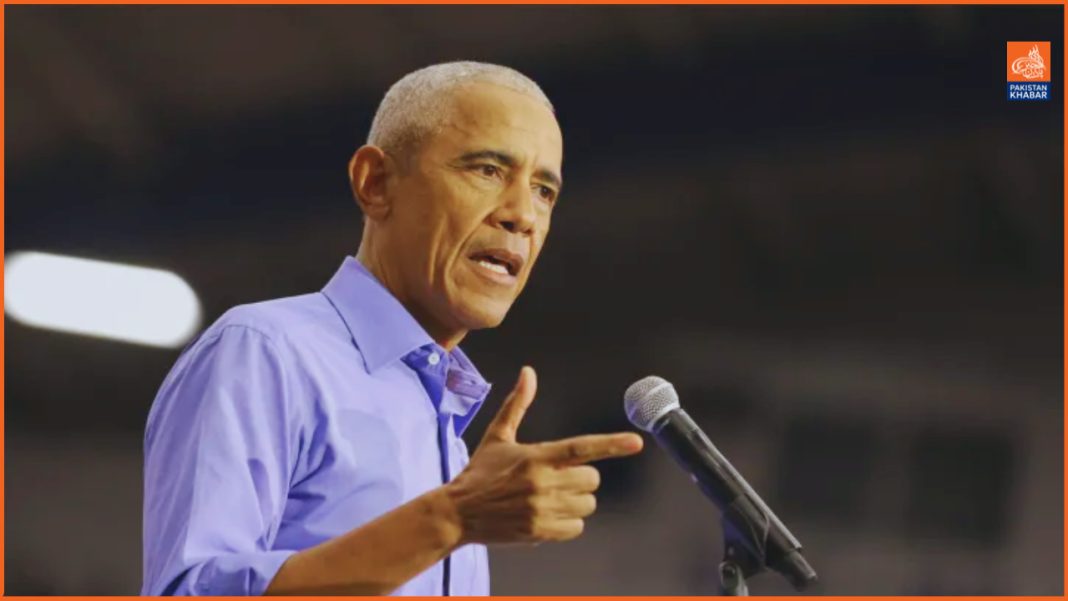If there’s a typical voter for Kamala Harris, it might be Charles Johnson, a politically engaged 23-year-old Black college student who attended a rally for former President Barack Obama at the University of Arizona. However, Johnson isn’t particularly impressed by either Obama or Harris; he’s leaning toward voting for Donald Trump. “Despite the media’s negative depiction of him as a terrible and racist figure, Trump is actually seeing a rise in support among Black voters,” Johnson noted.
Democrats are concerned about Harris’s declining support among Black voters, especially young Black men. As Obama campaigns for Harris, his challenge is to convince voters like Johnson that supporting Trump would be a mistake. In the lead-up to the election, Obama plans to engage with popular podcasters and internet personalities to reach this demographic.
Despite being a prominent figure in national politics and maintaining popularity, Obama’s influence on younger Black voters is uncertain. While surveys indicate a favorable opinion of him, some young Black men feel he may not resonate with their experiences. For instance, Miles Covington, a 35-year-old student, believes a younger Black figure is needed to engage this audience effectively.
At recent rallies in Tucson and Las Vegas, Obama attracted large crowds, but attendance among young Black men was notably low. His comments on the challenges of Black men potentially avoiding the election due to Harris’s candidacy sparked backlash, highlighting the complexities of race and generational perspectives in the current political landscape.
Obama remains determined to engage Black male voters, seeing them as crucial for Kamala Harris’s success in the upcoming election. While historically a strong part of the Democratic coalition, recent polls show Harris’s support among Black voters at 78%, which is lower than Joe Biden’s numbers in 2020. To counter this decline, Harris is also looking to perform better with other demographics.
Illinois Governor JB Pritzker noted that there’s potential for Harris to gain support from non-college-educated women, suggesting a shift in voter dynamics. Obama has shifted his messaging, no longer linking sexism to the hesitance of some male voters towards Harris, instead framing the appeal of Trump as a false notion of strength. He emphasized that real strength lies in hard work and accountability.
Some Black men attending Obama’s speeches expressed mixed feelings. Kalid Meky, a Harris supporter, acknowledged Obama’s influence but doubted its overall impact, citing Trump’s charisma and nonconformist attitude as appealing traits. Concerns about Harris’s history as a former prosecutor also linger, with some questioning her connection to Black communities.
Young voters like Charles Johnson recognize Trump’s controversial past but express skepticism about the Democratic candidates’ commitment to racial progress. He noted that while Obama focused on race during his presidency, he could have done more, and this concern extends to Harris as well.
Overall, as Obama campaigns for Harris, he faces the challenge of reconnecting with a demographic that is increasingly ambivalent.




